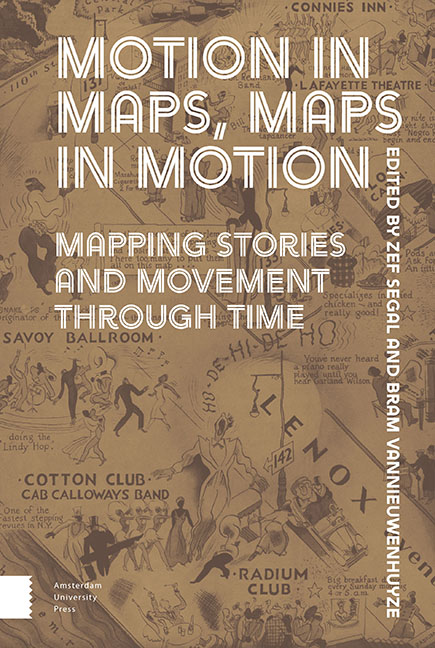Book contents
- Frontmatter
- Contents
- List of Figures
- List of Diagrams
- Introduction
- 1 The New World Map and the Old; The Moving Narrative of Joan Blaeu’s Nova Totius Terrarum Orbis Tabula (1648)
- 2 Entangled Maps; Topography and Narratives in Early Modern Story Maps*
- 3 Flow Mapping through the Times; The Transition from Harness to Nazi Propaganda
- 4 The Tensions of Heterochronicity on Cartographies of Imperial Motion in Japan
- 5 A School Atlas as a History Machine: The Bosatlas Online
- 6 Facebook Cartographies and the Mapping of Local History; Storied Maps from the American Middletown
- 7 ‘Change-of-State’ in the History of Cartography
6 - Facebook Cartographies and the Mapping of Local History; Storied Maps from the American Middletown
Published online by Cambridge University Press: 20 November 2020
- Frontmatter
- Contents
- List of Figures
- List of Diagrams
- Introduction
- 1 The New World Map and the Old; The Moving Narrative of Joan Blaeu’s Nova Totius Terrarum Orbis Tabula (1648)
- 2 Entangled Maps; Topography and Narratives in Early Modern Story Maps*
- 3 Flow Mapping through the Times; The Transition from Harness to Nazi Propaganda
- 4 The Tensions of Heterochronicity on Cartographies of Imperial Motion in Japan
- 5 A School Atlas as a History Machine: The Bosatlas Online
- 6 Facebook Cartographies and the Mapping of Local History; Storied Maps from the American Middletown
- 7 ‘Change-of-State’ in the History of Cartography
Summary
Abstract
Place-related data from social media platforms are still awaiting further exploration in mapping and map-making and are useful to stimulate a debate on how to visualize cartographically this type of subjective and unstructured information. The example of a Facebook group on local history from a town in the American Midwest is used to discuss potentials and limitations of visually capturing historical events and processes. Variations of online story maps are presented as cartographic exercises of deep mapping, in order to point out the relationship between the digital humanities, historical GIS, and historical cartography. The text makes a plea for a narrative cartography of everyday life based on the experiences and values of ordinary people.
Keywords: Cartographic storytelling; digital humanities; deep map; Facebook; local history; Muncie, Indiana
Introduction
Historical maps are powerful storytelling devices for revealing facts, worldviews, and knowledge from the past. In the early 1990s, J.B. Harley stressed the complexity of cartographic representations as multi-layered documents and sources of information and wrote that the fascination of maps ‘lies in their inherent ambivalence and in our ability to tease out new meanings, hidden agendas, and contrasting world views from between the lines of the image.’ He conceived maps as cultural texts that had to be read within the context of the society in which they were produced.
In order to understand maps and their messages, the reader must take into account the three Ms that accompany the cartographic representation in the mapping process: modes (what); methods (how); and moments (when and where). This entails questions about the contextualization of mapping practices, alternative and innovative methodological approaches to studying maps, and the importance of events and stories in cartographic history. This conception of cartography counters traditional forms of mapmaking that have
replicated old certainties, focusing on areas, scales and themes, deploying rather tired existing ways of imagining the world and simply applying these to interactive, animated and multimediated contexts, instead of exploring the full potential of new contexts, styles and technologies.
These thought-provoking ideas for map reading have triggered a fruitful, controversial, and ongoing debate about cartographic theory and interpretation strategies, inviting cartographers, historians, and geographers to rethink the map.
- Type
- Chapter
- Information
- Motion in Maps, Maps in MotionMapping Stories and Movement through Time, pp. 153 - 176Publisher: Amsterdam University PressPrint publication year: 2020



